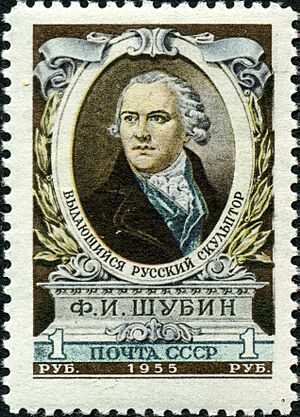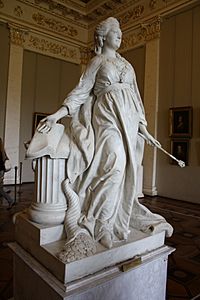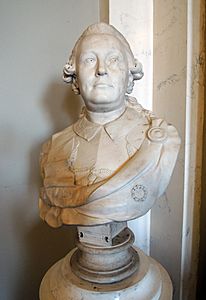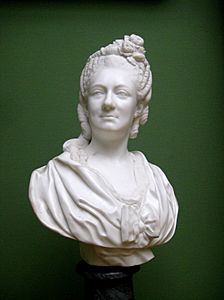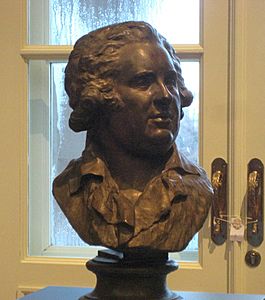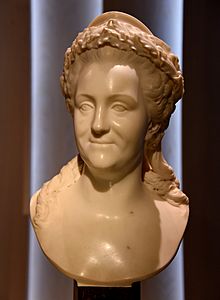Fedot Shubin facts for kids
Quick facts for kids
Fedot Shubin
|
|
|---|---|
| Федот Иванович Шубин | |
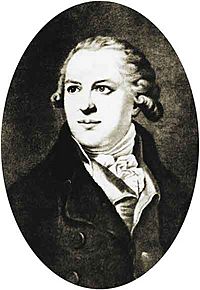 |
|
| Born |
Fedot Shubnoj
May 17, 1740 Archangelgorod Governorate
|
| Died | May 12, 1805 (aged 64) |
| Education | Member Academy of Arts (1774) |
| Alma mater | Imperial Academy of Arts (1766) |
| Known for | Sculpture |
| Awards | |
Fedot Ivanovich Shubin (born May 28, 1740 – died May 24, 1805) was a very important sculptor in Russia during the 1700s. Many people think he was the greatest Russian sculptor of his time.
About Fedot Shubin's Life
Fedot Shubin was born in a small village near Kholmogory. His family were peasants, which means they worked on the land. When he was 18, he was inspired by his neighbor, Mikhail Lomonosov, who was a famous scientist and artist. Shubin decided to walk all the way to Saint Petersburg to follow his dreams.
Lomonosov noticed that Fedot was very good at carving walrus ivory. This was a special skill from Shubin's home village. Lomonosov helped him get into the new Imperial Academy of Arts. This was a famous art school. Shubin's teacher, Nicolas-François Gillet, was so impressed with his talent that Fedot won a gold medal. This award meant he could go study art in other countries.
In 1767, with help from another artist named Étienne Maurice Falconet, Shubin went to Paris. He joined the workshop of the famous sculptor Jean-Baptiste Pigalle. Three years later, he moved to Rome to continue his studies.
When Shubin came back to Russia in 1772, he became the most popular sculptor in the country. Everyone wanted him to create their statues. In the 1770s and 1780s, he made many artworks for important places like the Marble Palace and the Alexandro-Nevsky Lavra. He also designed 58 special medallions. These medallions showed all the Russian rulers, starting from Rurik. Because of his great work, he became an academician at the Academy of Arts. This meant he was a respected member of the art community.
However, some other artists who were jealous tried to make things difficult for him. This caused problems for his career. He didn't have much money until 1794. That year, the Academy finally made him a professor, which was a very important position.
A copy of an early statue of Tsar Alexander I by Shubin is kept at Thomas Jefferson's house, Monticello, in Albemarle County, Virginia. The original statue was a gift to Jefferson in 1804 from Levett Harris, an American official in Saint Petersburg. Shubin's original statue was later lost. Today, Shubin's original portrait of Tsar Alexander is in a museum in Voronezh, Russia. The copy at Monticello was made in 1955.
Famous Artworks by Shubin
Fedot Shubin created many beautiful sculptures. He was especially known for his realistic and detailed portraits of important people.
See also
 In Spanish: Fedot Shubin para niños
In Spanish: Fedot Shubin para niños
 | Chris Smalls |
 | Fred Hampton |
 | Ralph Abernathy |


